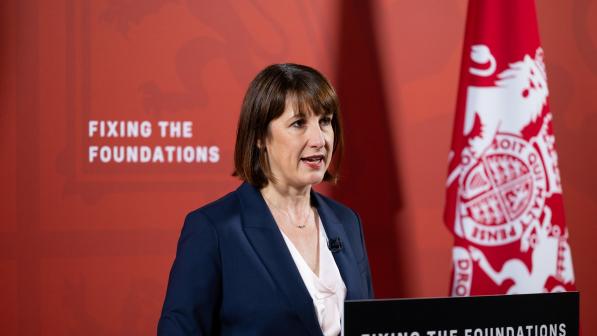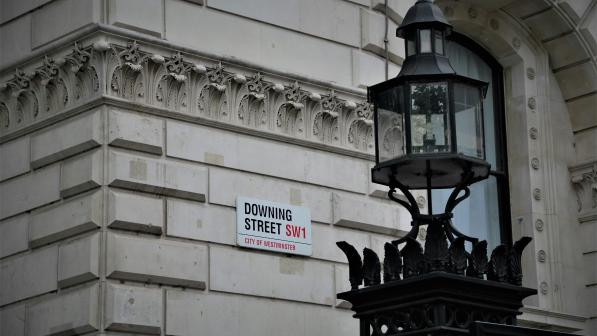Extra funding for cycling in the Autumn Budget

Our immediate response on the day was that this budget boost is good news and feels like a campaign win, especially in the face of pre-budget speculation about black holes and the transport budget being cut.
Good news – new money for cycling and walking
The extra £100m for cycling, walking and wheeling wasn’t revealed during Reeves’s lunchtime speech on 30 October. Instead we had to find the relevant single sentence (page 96 if you are interested) in the Autumn Budget document published after she had sat down and received the congratulations of her party.
Even then there was some confusion regarding the detail and implications, so my colleague had to seek clarification with officials at the Department for Transport.
What we know now is that the £100m of new money announced is on top of the approximate £50m which has been the capital funding part of the active travel budget for the past two years – the funding pot which pays for building things liked cycle lanes.
You may remember that in March 2023 the Sunak government slashed the budget for capital projects by 75% from £200m per year to approximately £50m – a real kick in the guts at the time. The new budget goes a good way to reversing those cuts but not fully all the way.
We don’t yet have clarity on what the budget includes in terms of resource funding (separate to the capital funding discussed above) – the funding for projects which enable people to get on bikes – like our Big Bike Revival project in England. We will be working hard to understand the full outcomes of the budget for active travel in due course as the Department for Transport’s budget is clarified.
Despite our welcoming of an extra £100m, the final active travel budget will sadly fall far short of the ‘unprecedented levels of funding’ promised by Transport Secretary Louise Haigh in August and the 10% of the transport budget which we called for ahead of the election and before the budget. However, there is still time for this government to ‘fix the foundations’ so that more funding can be delivered in future years.
We know that Rachel Reeves is keen to invest in Britain and the data show that money for cycling is very good value for money – for every £1 spent on cycling and walking schemes, £5.62 worth of wider benefits are achieved. This is a much better investment than road building.
Compared to other government projects, the money needed to create the safe cycle routes we need is relatively small, and the results can be seen in months and years rather than decades. Spending money to enable people to walk and cycle will benefit us now and in the future.
Other positives
Potholes and the state of the nation’s roads were a symbol of ‘broken Britain’ during the election and it looks like the Chancellor intends to put this right early on in this Parliament by announcing a 50% increase in funding for local roads maintenance – up to £1.6bn. There’s also a promise to go beyond the target to fix an ‘additional one million potholes across England each year’ which is good for people riding a bike as potholes can be a deadly menace.
There’s more money for transport in city regions, for rail infrastructure, and funding for buses, plus government is ditching five road schemes which it said are ‘unfunded and unaffordable’. In her speech, the Chancellor also announced a small rise in Air Passenger Duty but a whopping 50% increase for private jets, thus targeting those who make the largest impact on the climate through flying.
Bad news – status quo maintained on driving
Somewhat disappointing was the Chancellor’s decision to both raise the bus fare cap from £2 to £3 and to maintain the freeze on fuel duty for the 14th year in a row. The continued fuel duty freeze means that the cost of petrol and diesel will not rise at the same rate as public transport and the cost of living.
Analysis from the RAC Foundation found that over the past 10 years, while the cost of living has increased by 50%, the cost of fuel has only increased by 15%. Again, the RAC Foundation reported that the cost of motoring has increased by 50% in the same period while the price of travel by bus has shot up by almost 70%.
This means that the new Labour government is maintaining the Conservative’s policy of artificially keeping the cost of motoring lower than it should be, despite one of its much-hyped cross-governmental missions being to address the climate crisis. Transport is the UK’s biggest source of climate emissions (28%) and the use of cars is the largest contributor to this.
We have called on UK Government to focus on providing more choice for people in how they travel so they aren’t forced to rely on their cars.
Cycling is one of those options which people could choose for everyday journeys if there was safe cycling infrastructure and space on the road, but money is needed to make this happen. Bus travel is another option, so again it’s disappointing that the government has made it more expensive in England.
The freeze on fuel duty for a year is reportedly worth £3bn which, if she had chosen to do so, Reeves could have removed and raised much-needed money for public transport and active travel.
This would have made a big statement that the government wants people to move to sustainable and healthy travel options as a way of meeting the net-zero mission – not to mention the health mission. £3bn could transform investment in active travel and encourage people to use public transport.
Our relationship building and positive engagement with new ministers since the election has paid off, shown by their improved messaging around the importance of cycling, and now the extra £100m, which is hopefully a sign of more funding to come.
We can’t do this key work of influencing government without you. Supporting our campaigns through donations or signing our online actions is really important. We would be really grateful for your support to help us call for more funding by making a donation today.

